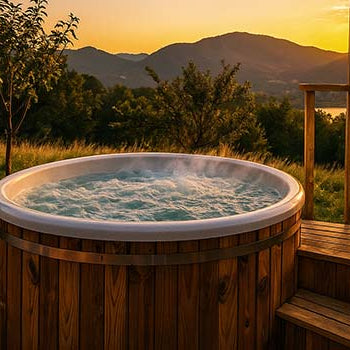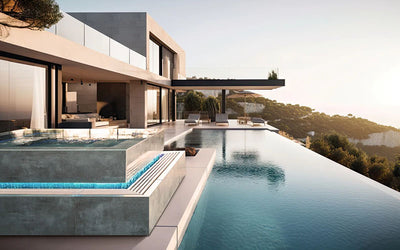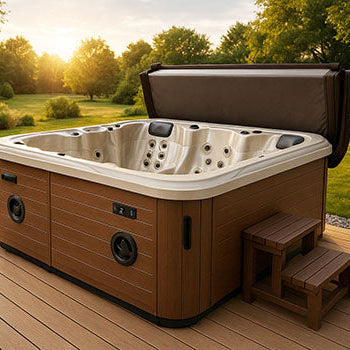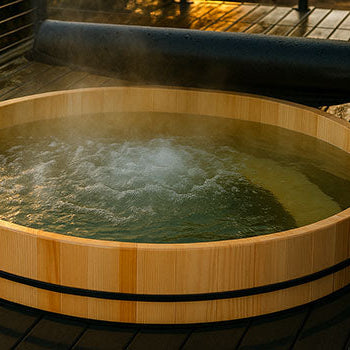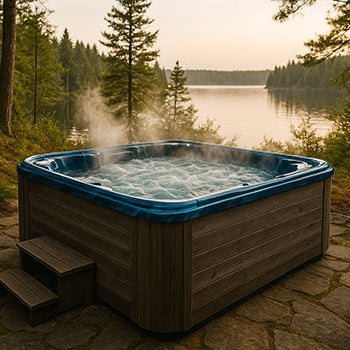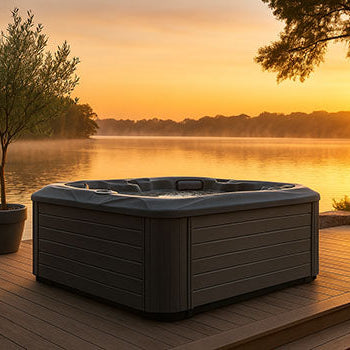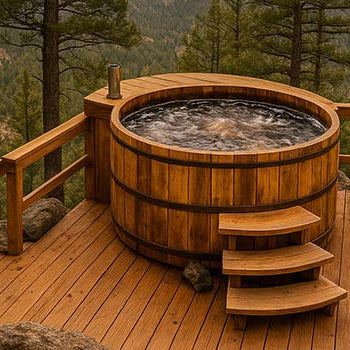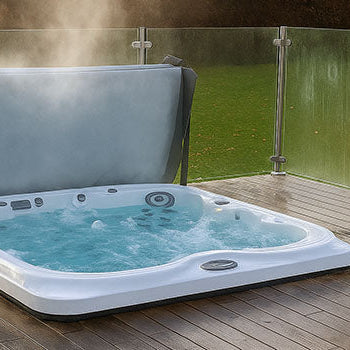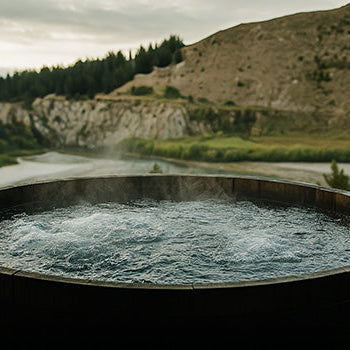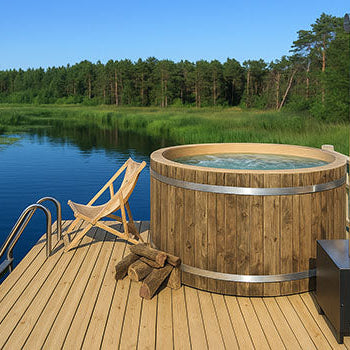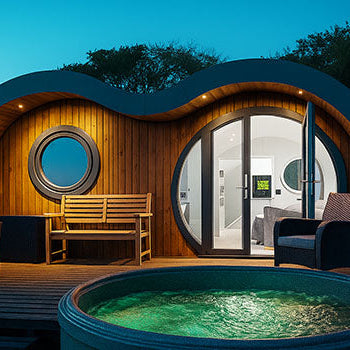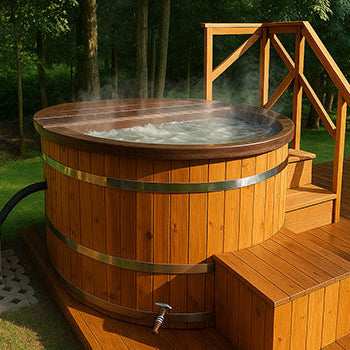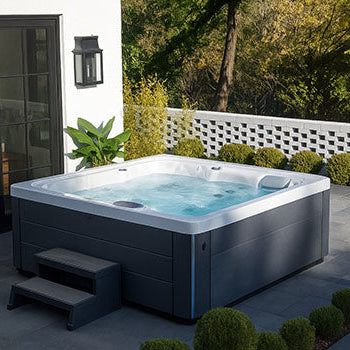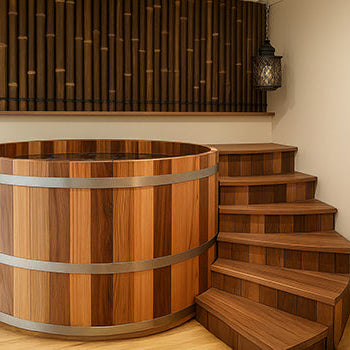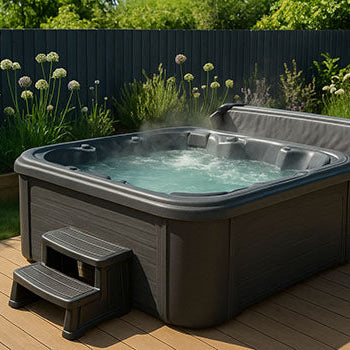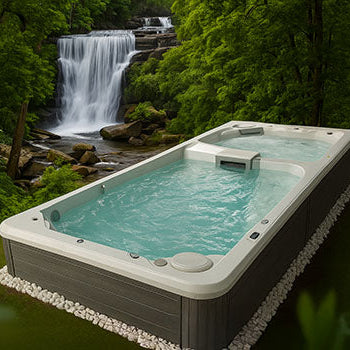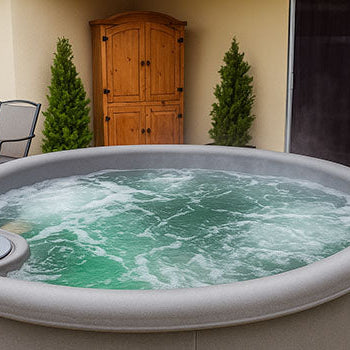Ever noticed how you knock out like a light after a good soak? Short answer: a hot tub raises your body temperature, then cools it down, telling your brain it’s bedtime. That warm-up and cooldown combo is a powerful sleep trigger. Whether you’re relaxing in an Acrylic Hot Tub, floating in a Rotomoulded one, or tucked into a charming Wooden tub, the benefits go way beyond relaxation. Let’s unpack what’s going on behind those deeper, dreamier nights.

The Link Between Body Temperature and Sleep Cycles
Your Body's Natural Temperature Dip Before Sleep
About two hours before bedtime, your body starts cooling down. It’s subtle, but it’s part of your natural circadian rhythm. This drop in core temperature tells your brain to start winding down and helps you fall asleep faster.
How a Hot Tub Soak Mimics and Enhances This Process
Soaking in warm water may feel like a treat, but it’s also working behind the scenes. As you warm up, your blood vessels expand and circulation improves. Then, when you step out, your body starts to cool rapidly, mimicking your natural sleep prep cycle.
Raising Core Temperature in the Tub
A hot tub gently heats you from the outside in. Hands, feet, and skin warm first. As your core body temperature rises, you start feeling calmer. It’s your body’s way of saying, “This feels safe and good.”
The Cooling Down Phase After Getting Out: Signalling Sleep
The moment you leave the water, the real shift begins. That cooling phase kickstarts melatonin production and signals that it’s time to rest. No wonder you feel like sinking straight into bed.
Relaxation: Preparing Mind and Body for Rest
Stress Reduction Through Warm Water Immersion
Stress clings to us, even at bedtime. But when you’re in warm water, your body releases tension, literally lowering cortisol levels. It’s like telling your nervous system, “You’re off duty now.”
Muscle Relaxation and Easing Physical Tension
Had a long day on your feet or at your desk? Your muscles probably noticed. The heat and buoyancy in a hot tub ease tightness and reduce inflammation, helping your whole body feel lighter and more relaxed.
Mental Decompression and Reduced Anxiety
It’s not just about muscle knots. A calm soak lets your thoughts slow down, too. The quiet, the warmth, the stillness, they all help switch off racing thoughts so your mind can finally relax.
Creating a Calming Pre-Sleep Ritual
Doing the same thing before bed each night can train your brain. A nightly soak becomes your body’s signal that it’s nearly sleep time. Over time, it turns into a powerful wind-down habit that boosts sleep quality naturally.

Other Contributing Factors
Pain Relief Allowing for More Comfortable Rest
If aches and pains keep you up, hot water might be your best ally. It reduces pressure on joints and soothes sore spots. Less pain means fewer wake-ups and more comfort throughout the night.
Improved Circulation Effects
Soaking boosts circulation, helping oxygen and nutrients move freely. That means better recovery, less tension, and fewer reasons for your body to stay alert when it should be sleeping.
Optimising Hot Tub Use for Better Sleep
Timing Your Soak Correctly (60–90 Minutes Before Bed Recommended)
You’ll want to time it right. Soaking about 60 to 90 minutes before bed allows your body to heat up and then cool naturally, which aligns perfectly with your sleep rhythm.
Keeping Water Temperature Moderate (Avoid Overheating)
There’s such a thing as too hot. Aim for 37–39°C (98–102°F). Anything hotter could overstimulate your system and make falling asleep harder, not easier.
Duration of Soak (15–20 Minutes is Often Sufficient)
Long soaks sound tempting, but shorter is often smarter. Just 15 to 20 minutes is enough to trigger relaxation without leaving you lightheaded or dehydrated.
Creating a Relaxing Atmosphere (Low Lights, Quiet)
Mood matters. Soft lighting, maybe a candle or two, and no screens. Creating a peaceful atmosphere enhances the calming effect and tells your brain, “We’re done for the day.”
When Hot Tubs Might Not Help Sleep
Soaking Too Close to Bedtime
Don’t hop in and then straight into bed. Your body needs time to cool down after soaking. If you get in too late, you might feel too hot to sleep comfortably.
Using Water That is Too Hot or Staying In Too Long
Scalding water and marathon soaks? Not ideal. You risk overheating, dehydration, or feeling more wired than relaxed, which defeats the whole purpose.
Individual Sensitivities
Some people just respond differently. Heat-sensitive sleepers or those with certain health conditions might need to adjust timing, temp, or skip evening soaks altogether. Listen to your body.

Conclusion: Hot Tubs Promote Sleep Through Temperature Regulation and Relaxation
From warming you up to cooling you down, hot tubs help your body follow its natural rhythm. Add in muscle relief, reduced stress, and a relaxing ritual, and you’ve got the perfect pre-sleep combo.
Want to sleep better without pills or apps? Try a 15–20 minute soak in warm water, 60 to 90 minutes before bed. Your Acrylic, Rotomoulded, or Wooden Hot Tub might just be the bedtime secret you’ve been missing.
